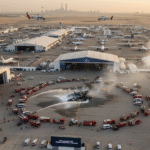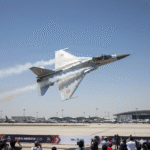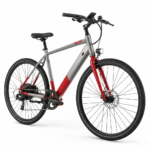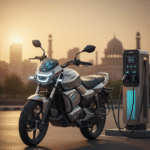
Hyperloop, the company renowned for its ambitious vision of propelling passengers at incredible speeds through vacuum tubes has ceased operations. One, initially inspired by Elon Musk’s concept, aimed to revolutionize travel by drastically reducing journey times. Despite previous support from Virgin founder Richard Branson, who withdrew his backing last year, the company will terminate its remaining workforce by the year’s end, according to Bloomberg.
Hyperloop’s MAGLEV
Hyperloop One’s innovative approach involved employing magnetic levitation (maglev) technology within a vacuum tube to minimize friction and air resistance, enabling trains to reach speeds of 700mph (1,127km/h). This cutting-edge technology promised a more environmentally friendly alternative to existing high-speed transportation systems.

Countries like the United States, India, the United Arab Emirates, and others have been actively exploring the implementation of Hyperloop technology. Various companies, including Virgin and Elon Musk’s Boring Company, have been at the forefront of developing and testing Hyperloop systems.
Several prototypes and feasibility studies have showcased the potential of significantly reduce travel times between major cities, offering a faster, more efficient, and sustainable alternative to traditional modes of transportation.
While the company successfully constructed prototypes in the Nevada desert, the project faced challenges, with experts expressing doubts about its feasibility. The ambitious undertaking required the installation of massive tubes across rural and urban landscapes, presenting engineering and logistical complexities. Additionally, the hyper loop system struggled with navigating corners, necessitating straight-line tube configurations.

In 2020, Hyper loop One conducted a trial with two employees—the first successful passenger ride using hyperloop technology. The pod achieved a top speed of 107mph (172km/h) during the 546-yard (500m) test run. However, the company altered its strategy in 2022, shifting its focus from passenger transport to cargo shipping. This strategic pivot resulted in over 100 job losses, followed by additional layoffs later that year.
.
By the end of 2022, Richard Branson, who served as the company chairman, disassociated from Hyper loop One, withdrawing Virgin’s endorsement.
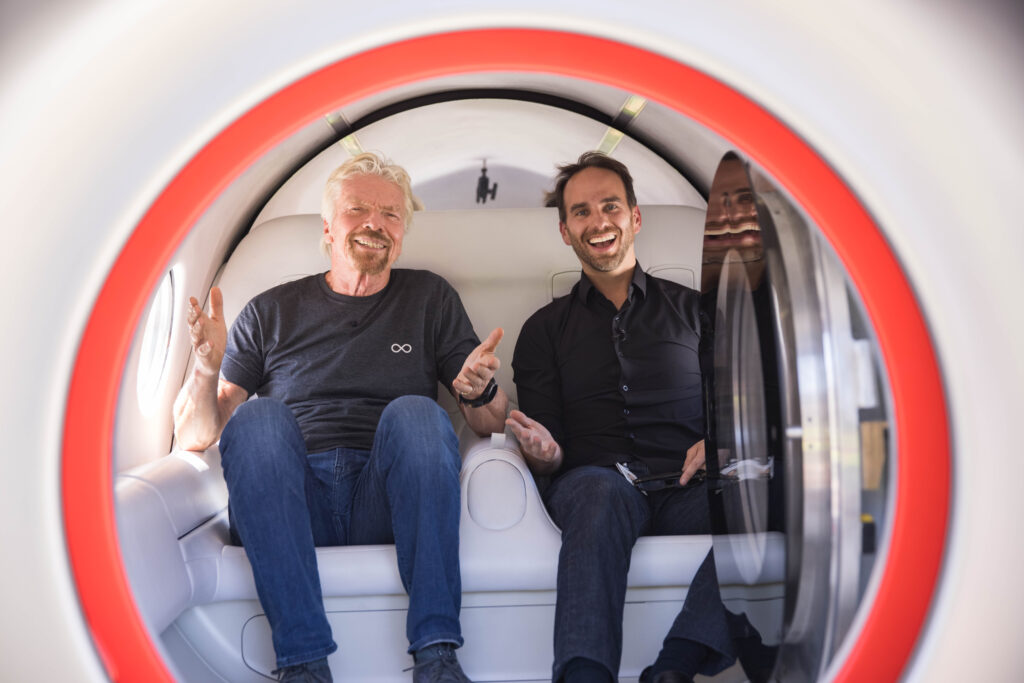
The company’s history also included a scandal, with a former director, Ziyavudin Magomedov, imprisoned in Russia on embezzlement charges. Another investor, Shervin Pishevar, departed in 2017 amid reported allegations of sexual misconduct.
The original hyperloop concept, outlined in a 2013 report by Elon Musk, proposed the rapid transit of capsules through high-speed tubes. Elon Musk’s independent venture, The Boring Company, continues to explore similar technology using underground tunnels. Despite the setbacks faced by Hyperloop One, several companies worldwide persist in developing and refining the hyperloop concept. DP World, the Dubai-based majority stakeholder in Hyperloop One, has been approached for comments on the recent developments.




